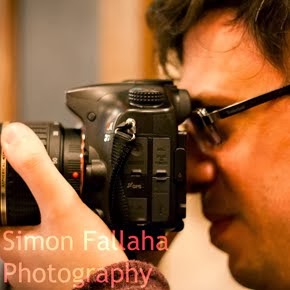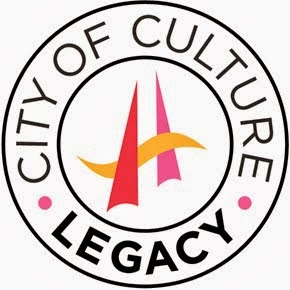An eclectic, effervescent vocal tuneathon adorns the City Of Derry International Choral Festival
As the third gala concert of Derry-Londonderry's second annual international choral extravaganza begins, a formal, chatty atmosphere, with green and blue lights bathing the rear of the St. Columbs' Hall stage, gives way to welcoming applause for the BBC's Sarah Brett and the seven striking souls that will follow her introduction – basses Edward Randell and Kevin Fox, tenors Oliver Griffiths and Christopher Jay, alto Clare Wheeler and sopranos Sara Brimer and Joanna Goldsmith-Eteson.
They are the Swingle Singers (hereafter the Swingles), four men and three women of remarkable vocal agility and ability who are set to raise the roof of this historic theatrical and musical arena like never before.
We are promised a mixture of reworked classics and timeless old favourites to go with the Swingles' own material. And we begin auspiciously, with airily Celtic oohs, aahs, hums and whistles that tie neatly into a sweetly seductive mellow melody backed up by percussion. Except there are no instruments to speak of: all accompaniment comes from the singers themselves in a performance fully in line with the nature of the festival. Call it "cantata a cappella".
As the air fades away, the lights dim, briefly casting shadows before the spotlight bursts upon a high tempo power percussion with Brimer, Goldsmith-Eteson, Randell and Fox fully working out their voices. If the opening tune inspires claps, this one brings roars, paving the way for "Gemiler Gerisune" a Turkish love song about two young lovers destined to be separated forever. The shift in tone from frivolous to forlorn is not damaging at all: rather, one can only marvel at the clarity, pitch and versatility of the vocalists in this multi-levelled choral concoction.
It's apparent that the Swingles thrive on being playful with chords, back beats and chants, an approach that comes to fruition in a male vocal bebop swing duet that encourages, nay, demands, audience participation. Even if we can't repeat every line or beat, we are fully in the mood of this very Bobby McFerrin-esque turn. "Don't worry, be happy"? Almost certainly.
Their broad, booming and quite brilliant take on Elbow's "Weather To Fly", which implies that the Swingles are having “the time of (their) lives” (and most, if not all, of the audience appear to be too) precedes a high-tempo, multi-layered jazzy take on Bach's “Two Sisters” that transcends the classic for a contemporary crowd. Loop recording comes in very handy here as up to 21 vocal strands are heard from the performers' voices. Impressive though it is, it's merely an appetizer for the breathtakingly beautiful rendition of John Martyn's "Couldn't Love You More" (listen above), arguably the highlight of the evening.
"Inspiration can come from anywhere", the group will later say, and they are right: they have already proven, and they will continue to prove, to be bittersweet romantics, children's storytellers and melodious musicians all at once. Eclectic entertainers. A reputation solidified by the very Toto-esque rock that soon follows along with a more quietly gloomy, yet soothing, approach to Bach.
They will later handle Debussy with the care and craft he deserves, their delicate, delectable Claire De Lune sandwiched in between the irresistible choral flourish that is "Piper", the catchy, uplifting "Burden", the neatly choreographed "Reservoir Kids" and, most impressively, a perfectly pitched, melancholic rendition of Mumford & Sons' "After The Storm".
On the whole it is a rather breathtaking tuneathon, lyrically and musically, the perfect tonic for the stormy conditions outside. The Swingles are ultimately testament to the power of the voice, and the voice alone, to enrich, enlighten and entertain hearts, senses and minds: which they do, in the most effervescent, elucidating manner possible.

























